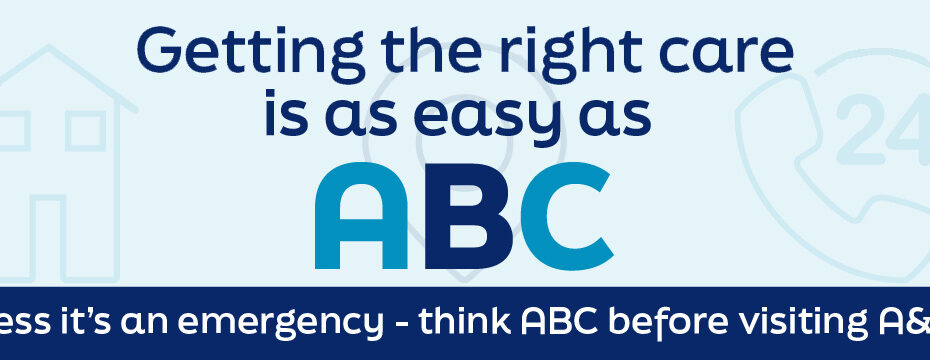
| NHS Greater Glasgow and Clyde is encouraging patients to ensure they are accessing the right care at the right place. Services continue to face challenges and recent figures have shown a spike in attendances at our hospital A&Es with a high proportion being treated for non-urgent issues, and we are encouraging members of the public to utilise the most appropriate care pathway for their needs. Did you know you can access care from your local pharmacy, GP, or minor injuries unit before attending the accident and emergency department? We are also asking people to think carefully about the care they need by remembering three simple suggestions. Accessing the right care is as easy as ABC: Ask yourself: Do I need to go out? For information on keeping yourself well and treating minor illnesses and injuries from home, go to NHS Inform or download the NHS24 app. Be aware: There is help right on your doorstep. Your local GP, pharmacy, dentist or optician offer a range of services. Call 111: If it’s urgent, or you’re not sure, call NHS24 on 111. They’ll make sure you get the help you need. Unless it’s an emergency, think A,B,C before going to A&E – but please remember, if you think your condition or injury is very urgent or life-threatening, you should call 999 or go to A&E immediately. Dr Scott Davidson, Deputy Medical Director for Acute Services at NHS Greater Glasgow and Clyde, said: “Services remain under pressure, and I would like to thank staff for their dedicated hard work through challenging circumstances. “We want to ensure that patients can be treated as quickly and effectively as possible, and that often is not at the emergency department. “Local pharmacies can assist with several health-related issues, as well as your GP and our minor injuries units. “If patients can utilise access to the most appropriate care pathway, it will help reduce waiting times for the sickest of patients and free up capacity. “However, if you believe your condition is urgent or life threatening, you should immediately call 999 or attend one of our A&E departments.” |
